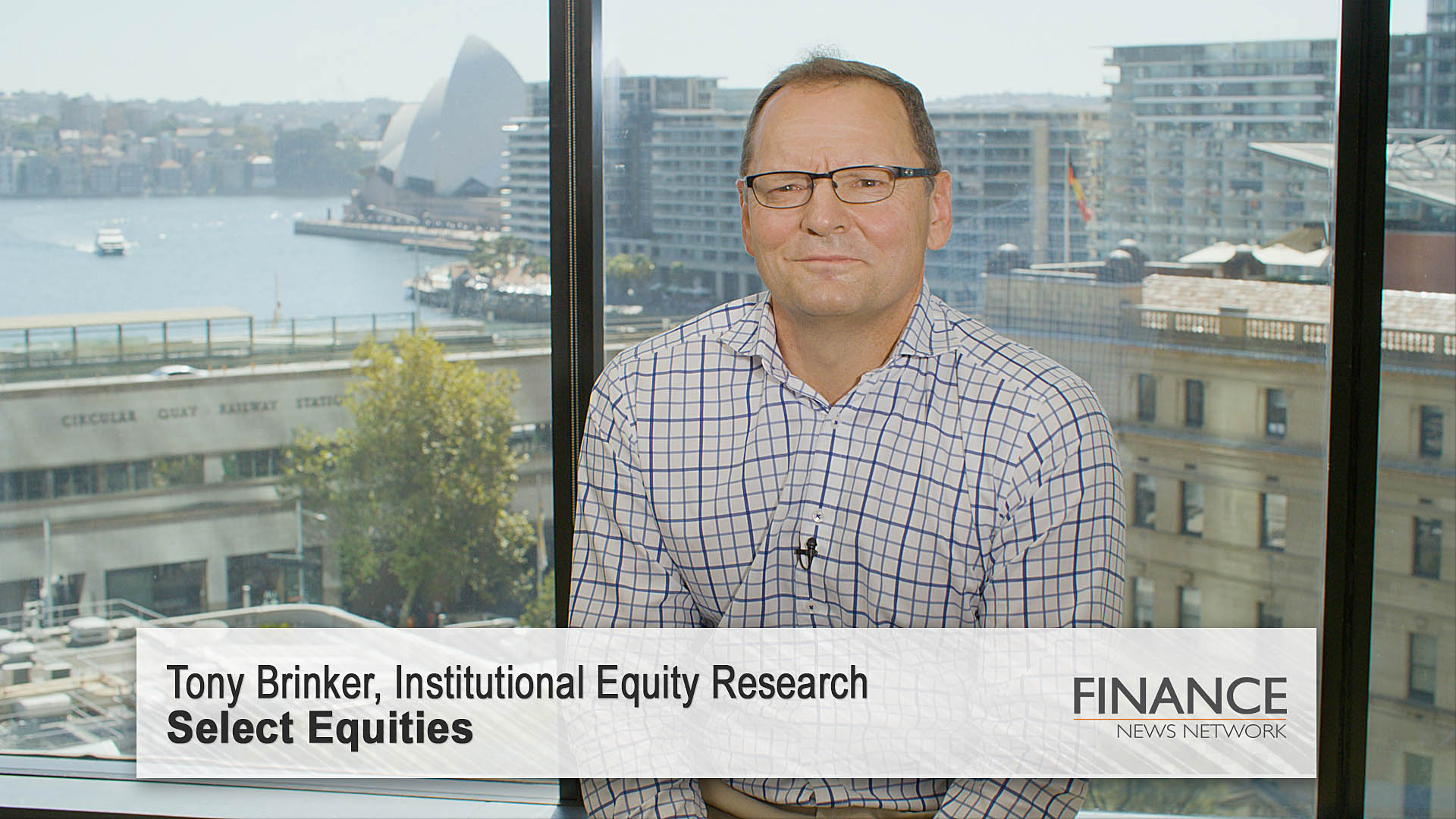What the banking crisis means for the equity market
Tony Brinker, Institutional Equity Research, Select Equities, discusses what happened with the Silicon Valley Bank, and implications for Australian investors.
Tim McGowen: We're talking today with Tony Brinker. Tony publishes proprietary macroeconomic analysis and strategic investment advice for institutional clients. Tony brings to the role 20 years of experience as a specialist in stock research distribution and also brings to his clients an independent perspective benefited by working for 10 years in the bond markets. Tony, thanks for your time.
Tony Brinker: Tim, thank you.
Tim McGowen: Now, European banks were all smashed overnight, so it's probably timely we had a chat. I suppose banking fears were raised probably 12, 18 months ago with Credit Suisse. We had the collapse of FTX, which is a slightly different beast.
Tony Brinker: Sure.
Tim McGowen: And now we've headed into Silicon Valley Bank and now probably back to Credit Suisse. Is there kind of systematic risk in the global financial system at the moment?
Tony Brinker: So, I think we have to presume that, Tim. In fact, if we go back further to the GFC, I think we can conclude that the central bankers decided there was a level of systematic risk and hence they introduced certain limits associated with the way banks could behave, and that includes the Dodd-Frank and others. One might say that Europe also introduced some limitations. Certain banks like Credit Suisse probably were already in trouble and hence the share price since then has been on the slide. What we are now seeing is somewhat of a complication. You can go and control the bank's balance sheet in a certain way, but unless you change certain laws, which we may discuss, when central banks move interest rates significantly, banks will struggle.
Tim McGowen: And Silicon Valley Bank, you said you've done some work on that. What's your colour on that situation?
Tony Brinker: Well, certainly, I knew very little about Silicon Valley Bank until about Friday, but what I've learned over these past few days is that banking regulation tightened up as a function of the 2010 changes under Dodd-Frank. In 2018, May, President Trump changed legislation associated with the capitalisation of banks that any bank at $50bn was not required to meet certain legislation limits. He set a new limit of $250bn. The limitation there was obviously to free up banks and perhaps also satisfy some of his Republican supporters, although Democrats did vote in favour at about 50. It only left about a dozen banks in the US limited by those regulations. Okay, so what's that mean? Well, prima facie, it means that, unfortunately, regulation has allowed those banks, junior banks to expand their balance sheets. So, SVB went from about $10bn to $15bn to about $200bn over the period. Is that of itself a bad thing? I think this is where we need to get into the nuts and bolts. What we've had is a situation in legislation where banks can hold assets in three pots. One is that they could be called trading assets, and so every day they have to be marked to market. Second is that they are available for sale, so they also impact the P&L on a daily basis. And the third, which is very important for banks like SVB, is they can have them in hold to maturity. Well, what's that mean? It means, well, in fact, they don't have to record them on a daily basis. And this is where interest rates get relevant. So, they had a certain amount of securities, about $20bn of US treasuries. They held them in hold to maturity. Ordinarily, you'd have those swapped so the interest rate differential between the two would be very low. But under legislation in the US, banks get a very onerous burden on having to report in their hold to maturity their swap valuation daily. But they don't have to do it on the bond position. So, there's a mismatch. So, what they do is they don't hold the swap in their hold to maturity. So, when the valuation of bonds in these books expanded very dramatically as interest rates fell, no one cared. Balance sheets were ridiculously healthy. But, of course, the antithesis of that is when interest rates rise very quickly and the value of those books fall. So, SVB then had an issue. Should they been hedging? Yes. Should they have been responding to the change in the valuation of their book? Yes. Were they capital-challenged? No. The timing's everything. And the issue of solvency versus liquidity is then an issue.
Tim McGowen: And, Tony, for Australian investors, is there any implications for the Australian banking system here?
Tony Brinker: I think the Australian banking system post the Hayne Royal Commission is in a very, very healthy position with reference to capital. Obviously, there will be those who'll be concerned that, if we don't have exposure to treasuries and interest rates per se, it will be via the housing market where we have our issue. So, if the housing market is weakening, does that mean that the banks are challenged? Now, our work would suggest that there is no issue at this stage, but it doesn't mean that sentiment won't be reflected in share prices, at least in the short run.
Tim McGowen: And, of course, lots of talk in the US in particular around interest rates, and there's a couple of investment banks who have come out and said they don't expect rates to rise. What's your outlook in relation to the banking system and the correlation between rates rising or falling?
Tony Brinker: So, just checking what the markets are saying overnight, they've suggested there's about a 48 per cent chance of the Federal Reserve raising interest rates at their next meeting, which is the 22 March, and there's probably another 40-odd percent for a lift in May. What's that basically saying is, as far as the market's concerned, the Fed is very close to at least the end of its current cycle. Well, I think it'd be very prudent if the Fed did nothing and allowed the markets to calm over these next several weeks, which I expect.
Tim McGowen: And, of course, what does all this mean for equity valuations? Perhaps we start at the states and then talk about Australia.
Tony Brinker: Yeah. Equity valuations are obviously going to be challenged, given nervousness. We saw overnight the market discount very aggressively certain lead indicators of activity. Copper prices were down. Crude oil prices were down. And certainly today, material stocks, financials will be challenged, and that's the market discounting future growth. That is reasonable. I would say that might be an exaggeration, but then, you know, I don't know how far the banking system in the US might be challenged in the short run, but I'd say that that would be an exaggeration. And given our very, very strong correlation to that market, I think we can draw the same conclusion here.
Tim McGowen: Tony Brinker, thanks for your time.
Tony Brinker: Thanks, Tim.
Ends
Copyright 2023 – Finance News Network
Source: Finance News Network











